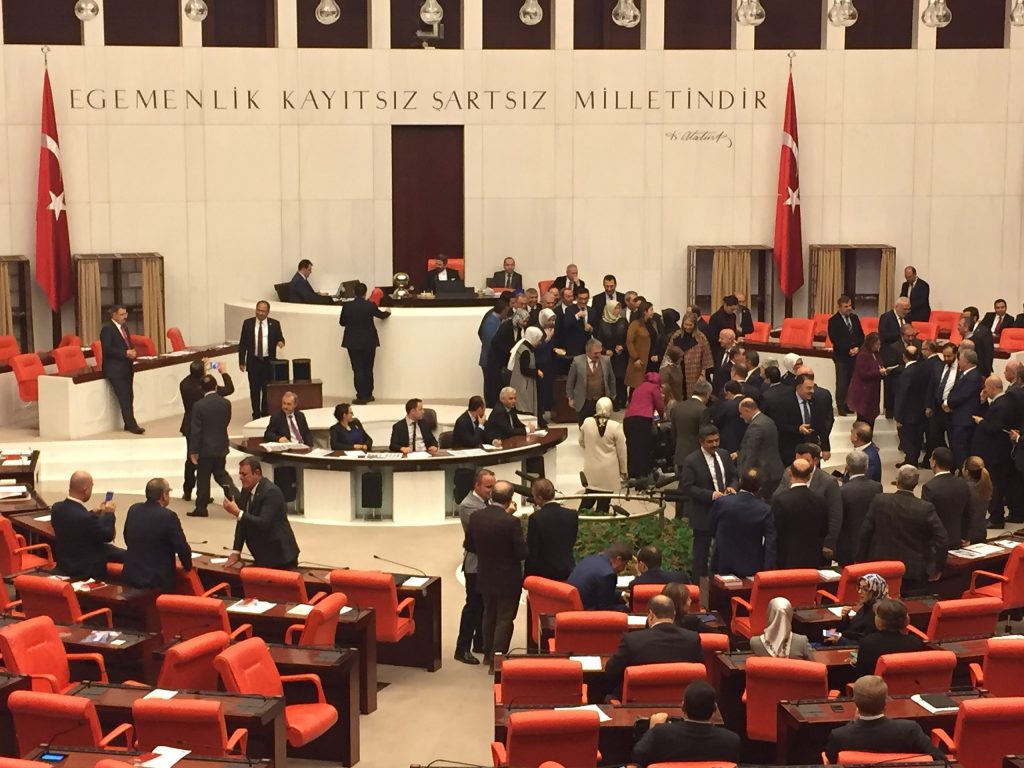In a statement Human Rights Watch and International Commission of Jurists argued that the proposed legislative amendment seeks to expand the definition of espionage in a vague way threatens Rights Defenders and Journalists.

Photo: Yildiz Yazicioglu (VOA)
In a joint declaration Human Rights Watch and International Commission of Jurists called for the Turkish parliament to reject a proposed legislative amendment that seeks to expand the definition of espionage in such a vague manner that it could criminalize legitimate work by human rights defenders, journalists, and other civil society actors in the country.
In a news report, Human Rights Watch underlined that the “draft law that includes an amendment titled “Committing crimes against the security or political interests of the state.” The amendment adds a new article, 339A, to Türkiye’s criminal code, creating an aggravated offense of a crime against the security of the state.
The amendment provides that if a crime against state security or against “its domestic or external political interests” is committed “in the strategic interests or upon the order of a foreign state or organization,” an offender can face from 3 to a potential maximum of 24 years in prison.
Under Türkiye’s criminal code, the existing offenses in the chapter “Crimes against state secrets and espionage” (articles 326-339) target obtaining, destroying, or disseminating state secrets and information. The new article, 339A, does not create a standalone offense, but rather would be combined with the prosecution of another crime. Prosecution in all cases is subject to the permission of the justice minister.
The official explanatory note accompanying the amendment says that the category of “crimes against domestic or external political interests” could encompass “other interests such as economic, financial, military, national defense, public health, public security, technological, cultural, transport, communications, cyber, critical infrastructure and energy [interests],” far broader than the existing espionage offenses.”
Amendments Inconsistent with Turkey’s Obligations under the ECHR
The coverage further underlined that this “clearly anticipates that a prosecutor, when charging a person with any number of offenses in Turkish law, potentially could also charge the person with acting in the strategic interest of a foreign power under the new article. For example, a prosecutor investigating the author of an international human rights report on suspicion of the already illegitimate charge of “insulting the president,” on the grounds that their reporting accused the president of responsibility for human rights violations, could also investigate the author on the additional charge of committing a crime “against the security or political interests of the state.”
The proposed amendment is inconsistent with Türkiye’s obligations under the European Convention on Human Rights (ECHR) and the International Covenant on Civil and Political Rights (ICCPR), in particular with respect to the rights to freedom of expression, association, and assembly. The draft article is also too vague and overbroad to meet the standards under international law of “legality.” To be valid, laws need to be sufficiently clear so that an average person can reasonably foresee the consequences of their actions and in particular when they may be in violation of the law. The draft article fails that test in many ways.”
To read the full article click here.

